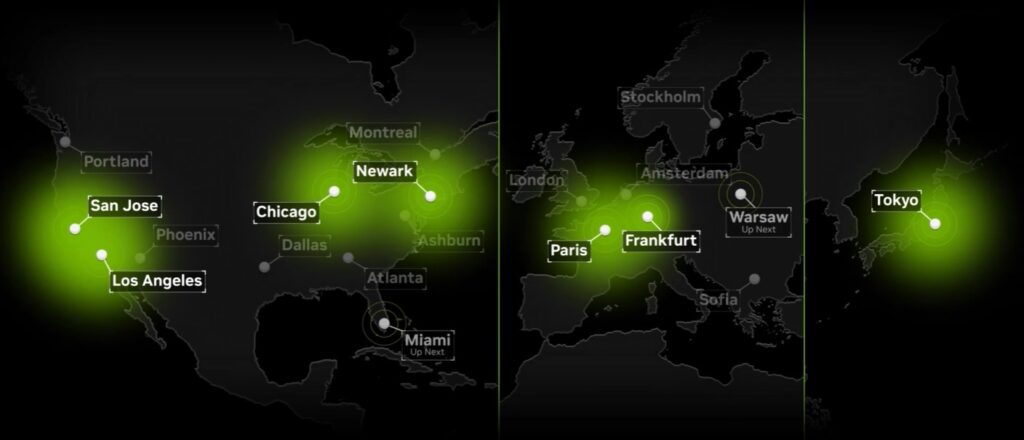Nvidia started rolling out its RTX 5080 upgrade for GeForce Now less than two weeks ago. Ultimate subscription members can now enjoy RTX 5080-level performance, but it all depends on their region. When this upgrade started to roll out, six server locations unlocked access to the new 5080 ‘SuperPODS’, and since then, a Tokyo server has been added.
It’s limited to a certain number of games, but moving forward, we expect to see the latest AAA games be RTX 5080-ready on the popular cloud gaming platform – we’ve already seen this with Borderlands 4. In any case, the number of regions is also growing, as in addition to the Tokyo servers, Nvidia has confirmed the next two to be Miami and Warsaw.
RTX 5080-powered servers on GeForce Now
You can keep track of the service through a live map on Nvidia’s website. The GeForce Now service status page is also a good place to check out if you want to keep track of RTX 5080-ready regions. Here’s the list so far:
- San Jose
- Los Angeles
- Chicago
- Miami (up next)
- Newark
- Paris
- Frankfurt
- Warsaw (up next)
- Tokyo


We’re still waiting for the upgrade to come to the UK, and as we learned ahead of launch, some regions will have to wait until 2026 – these are those that rely on Alliance partners such as Australia, New Zealand, Latin America, and more. RTX 5080-level performance means Ultimate members also get access to DLSS 4 with Multi Frame Generation. On top of that, the upgrade enables 5K support and up to 360 FPS streaming.
Prime Day may have closed its doors, but that hasn’t stopped great deals from landing on the web’s biggest online retailer. Here are all the best last chance savings from this year’s Prime event.
*Prices and savings subject to change. Click through to get the current prices.
Also included with the September update for GeForce Now is the new Install-to-Play feature, which aims to double Steam library support. Essentially what it does is allow developers that opt-in to GFN support to instantly get their game(s) on the platform without individual approval from Nvidia. The compromise is that these games are not instantly ‘Ready-to-Play’ and require to be installed on the cloud first by users, with a limited amount of storage. The initiative has seen indie games flood the service; typically, AAA games are already supported by Nvidia and go straight to the ‘Ready-to-Play’ category.
Source link

